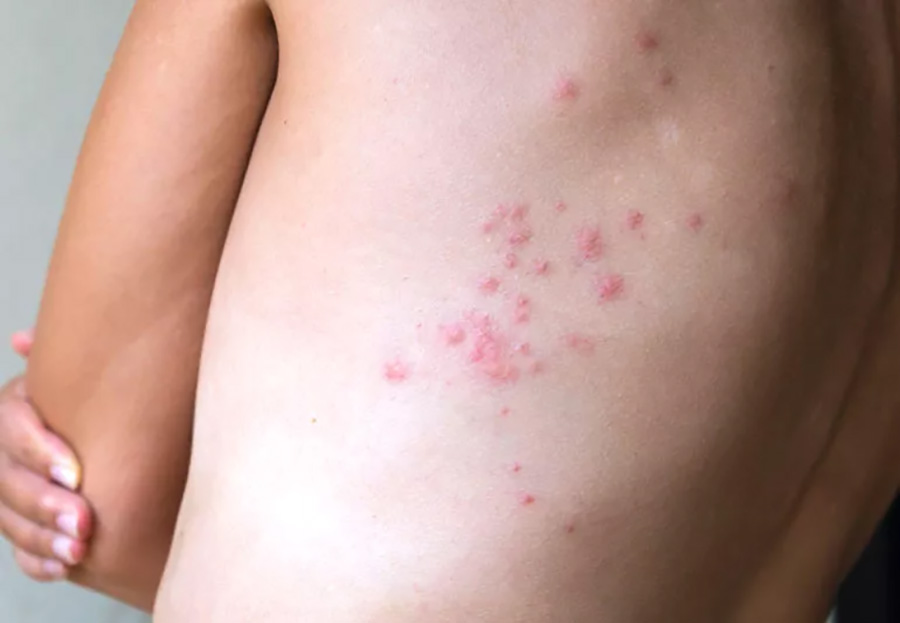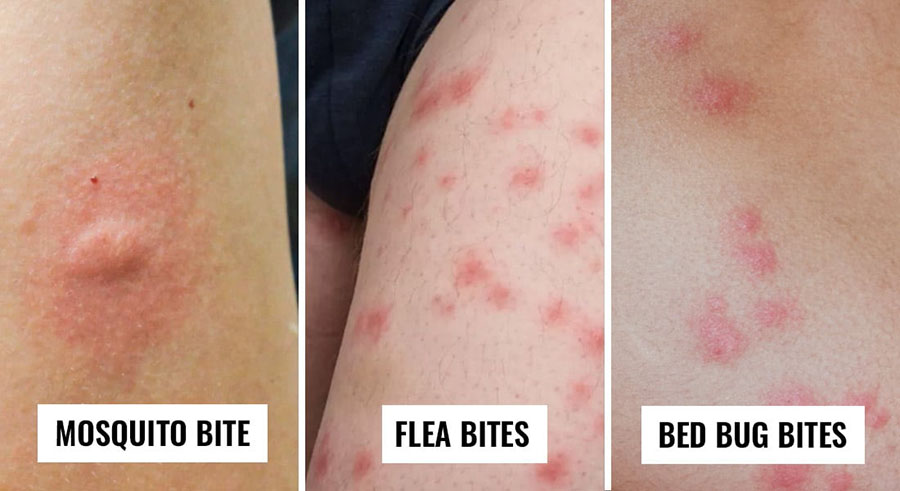Bed bugs are tiny, elusive pests that can cause more than just sleepless nights. While their bites are initially painless, the effects of these blood-sucking insects can extend far beyond the immediate irritation and itching.
In this guide, we examine the often-overlooked consequences of these unwelcome houseguests. From physical reactions to potential psychological impacts, we unravel a complex web of issues.
Beyond the well-known skin irritations, bed bug infestations can trigger severe reactions in some individuals. But the full scope of the harm remains to be explored. As we dive deeper into this comprehensive exploration, we’ll uncover the potentially far-reaching implications.
Prepare for an eye-opening journey into the lesser-known tolls of battling these persistent pests. Brace yourself as we peel back the layers surrounding the effects of bed bugs on human health. This article will arm you with the knowledge to better understand this often-underestimated household menace.

What Are the Effects of Bed Bugs on Human Health?
Bed bugs can affect human health by causing skin irritation and allergic reactions due to their bites, leading to redness and itching. Severe reactions are also possible for some individuals. The presence of bed bugs can cause stress and anxiety as well.
While their bites are bothersome, bed bugs do not transmit diseases. Regular monitoring and prompt treatment are essential to minimize the impact on health and well-being.
Diving into the impact
How can bed bugs affect your health? Bed bugs are more than just creepy crawlies; they can significantly impact our health and well-being. Their bites can cause itchy welts and even lead to secondary skin infections if scratched excessively. But the real harm often lies in their nocturnal activity.
Psychological and physical toll
The fear of being bitten at night disrupts sleep, leading to fatigue, irritability, and difficulty concentrating. The psychological impact of bed bugs can be just as severe. Constant worry about bites can lead to anxiety and stress, and concerns about spreading the infestation add to the distress.
Quality of life and financial burden
The social stigma associated with bed bugs can cause feelings of shame. These factors combine to reduce a person’s quality of life. Sleep deprivation and stress can make it hard to function at work or maintain healthy relationships. On top of that, the financial burden of professional treatment and replacing damaged belongings adds another layer of strain.
In short, bed bugs are a public health issue that can have a far-reaching negative impact on our lives.
Allergic Reactions to Bed Bug Bites
Can bed bugs cause health problems? Not everyone reacts the same way to bed bug bites. While some experience mild itching and irritation, others may have allergic reactions. This happens when the immune system goes into overdrive upon contact with the proteins bed bugs inject while feeding.
Mild to moderate reactions
Common signs of an allergic reaction include larger, redder, and itchier bite marks compared to typical reactions. Blisters or welts might also appear, and the intense itching can disrupt sleep and increase the risk of scratching and infection.
Unlike regular bites that stay localized, allergic reactions can sometimes cause hives – itchy welts that spread across the body, not just near the bites. Thankfully, most allergic reactions to bed bugs are mild and uncomfortable but not life-threatening.
Severe anaphylactic reactions
In rare cases, a severe allergic reaction known as anaphylaxis can occur. This is a medical emergency and requires immediate attention. Watch out for symptoms like difficulty breathing, facial and throat swelling, dizziness, rapid heartbeat, and nausea.
If you experience any of these after being bitten, call emergency services right away. Remember, allergic reactions to bed bugs are uncommon. If you suspect one, consult a doctor or dermatologist. They can assess the severity and recommend the best course of treatment.
Differentiating Bed Bug Bites
Deciphering between bites can be a challenge. Bed bugs leave their mark in clusters or lines, often on exposed skin during sleep. They typically target areas like arms, legs, shoulders, and neck.
In contrast, mosquito bites are lone warriors, larger, and itchier. Mosquito bites can appear anywhere on the body. Unlike bed bugs, whose bites might take hours or days to show, mosquito bites itch almost instantly.
Flea bites target the lower legs and ankles where clothing meets skin, causing immediate, intense itching and appearing in clusters. Chiggers, on the other hand, love your ankles and lower legs, too, leaving behind very itchy welts. Spider bites are often identified by two puncture marks in the center of a red, swollen area.
If you’re unsure about the culprit or the bites seem severe, consulting a healthcare professional is always recommended.

Conclusion
From physical afflictions to psychological burdens, the impact of bed bug infestations extends well beyond the bites themselves. In navigating the complex effects of bed bugs on human health, we hope this comprehensive exploration has illuminated the far-reaching implications of these pernicious pests.
We trust this article has equipped you with a deeper understanding of the diverse ways bed bugs can undermine human well-being. Armed with this knowledge, you can approach prevention and remediation with greater vigilance and insight.
As you move forward, remember the multifaceted nature of bed bug-related health concerns. This helps in mitigating the risks posed by these unwanted houseguests. Awareness is the first step toward a bug-free, healthier living environment.
